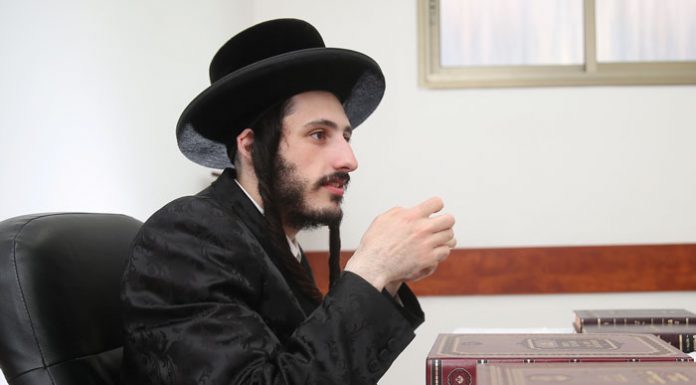Tzipora Schneerson—a granddaughter of the Baal Hatanya and a cousin of the Lubavitcher Rebbe—was a sixth-generation Yerushalmi who never anticipated a life outside of Eretz Yisrael. Her trajectory shifted when Arab terrorists infiltrated Kfar Chabad on April 11, 1956, firing into a crowd of 46 children, murdering five. The Lubavitcher Rebbe immediately sent 12 select yeshivah students to the Israeli village, both to comfort its residents and quell their fears. Among the 12 was a young man named Shraga Faivel Rimler. “You’ll come back a chasan,” the Rebbe said. As the Rebbe had predicted, Shraga met his bashert in Israel—Tzipora Schneerson, to whom he became engaged and eventually married in New York.
After residing in both Brownsville and Crown Heights, the Rimlers permanently settled in the Brighton Beach/Manhattan Beach area, where for nearly 50 years Rabbi Rimler served as the spiritual leader of the New Brighton Jewish Center. It was in their Brooklyn home that both a cataclysm and miracle occurred simultaneously ten years ago, and though the horror of the day has receded a little, the awareness of yad Hashem endures in sharp relief. As Sashi Fridman, one of the Rimlers’ daughters and a Chabad shluchah in Moscow, relates:
Typically, most people don’t commemorate the day a catastrophe first began; rather, they commemorate the auspicious day it ended. But my family always celebrates the first night of Chanukah with special fervor, even though it was on Erev Shabbos/Chanukah 2009 that my 72-year-old mother blacked out at the top of the basement stairs and tumbled down to the cellar floor below. She was unconscious when my father found her, bleeding from the nose, the brain injuries she sustained catapulting her into a coma from which doctors warned she would never awake.
It might sound counter-intuitive, but we actually celebrate that day because we are fully cognizant of the confluence of events that merged then—small things really, but things that helped save her life. First, my father was not supposed to be home at that time. Based on his regular schedule my mother should have been alone when the accident occurred. (All my siblings were long married, and most lived out of town.) When it comes to severe brain injuries there’s only a very small window of time in which the person can be effectively treated. There are about 20 minutes from the onset of the injury and that’s it. My father typically goes to the mikvah about an hour before Shabbos. But instead of adhering to his usual routine, he was home preparing the Chanukah licht. He was able to hear the noise of my mother’s body pitching forward and careening down the stairs. He went into emergency mode and called Hatzalah.
Another seemingly small aspect we consider a miracle was the location of the Hatzalah member who happened to answer the call: He lived only two blocks away. He was at our door almost as soon as my father hung up the phone. The ambulance raced to Lutheran Hospital because their trauma center specializes in brain injuries. They got there fast. Time was of the essence.
My sister met my father at the hospital and my mother was taken to radiology for an MRI. The brain scan revealed massive brain injury. The doctor’s prognosis was very dark. “Look,” he told my father somberly. “It’s a very dangerous situation; it’s extremely precarious. I don’t know if she’ll survive the operation.” He didn’t give my father much room for hope.
My mother was wheeled into the operating room shortly before Shabbos, at about 3:30 in the afternoon. I was in Moscow then, and time-wise we are eight hours ahead of New York. We had already gone into Shabbos long before my mother hurtled down the basement stairs.
My mother and I had always enjoyed a strong bond. Curiously, that same evening I experienced a terrible bout of insomnia, which usually doesn’t happen to me. I’m into health and nutrition and sleep comes easily. Somehow I started thinking about my parents and was suddenly seized by a strong longing to see them. When I finally got out of bed to go into another room, I happened to note the time on the clock: 10:45 p.m. Later, I learned that it was precisely then—2:45 in New York—that my mother’s world went black.





















